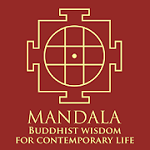
|
|
|
Home Asia Pacific South East Asia Myanmar Myanmar Protest News Protests are in the hands of the monksby Naomi Mann, Shan Herald Agency for News (SHAN), September 25, 2007
Naomi Mann interview members of the National League for Democracy (NLD) on the current wave of protests in Burma
A: In one sense, we HAVE to take a backseat. In order to take part in the 1990 elections, we agreed to abide by the 1988 political party registration act. According to this act, political parties, in pursuing their goals, are forbidden to unite with religious groups. If we are seen to be participating in the monks’ protests, we risk being deregistered and our organization judged illegal. As a people, we are 85% Buddhist and the Buddhist clergy - the Sangha – are extremely influential. Today, the monks have taken the situation into their own hands. Q: All of the current waves of protests were sparked by the Junta’s announcement of a doubling of fuel prices. Are you surprised that the monks have reacted the way that they have to this? A: Half surprised! The lack of genuine political dialogue and the Junta’s mismanagement of the economy were bound to lead to something like this. I am surprised that many of the leading monks are former political prisoners who were active in the 1988 demonstrations. Actually, these protests were not sparked by the fuel price rises as much as the political climate. This is a fire that has been smoking for a long time. It flared up in Pokkoku and is now burning through the whole country. You know that the head monk there is named ,’The zah’, which in Burmese means fire. Q: How do you gauge the reaction of the military authorities? The protests began with fairly small pockets of activists in Rangoon that were very swiftly and brutally pounced upon by the army as well as by locally hired militias. On the contrary, the attitude of the Junta toward the monks seems quite hesitant and insecure. A: Pokkoku has taught them a big lesson. If the monks are attacked again, the Junta risk the anger of the general population. We have a Burmese saying, ‘Sah yin leh yu meh, soh yin leh su me’ - The skin of the fruit you seek cannot be touched without pain, eating the fruit itself will drive you mad. This is a tough situation for them. As in the past, they have recruited the services of ‘fake monks’ from government backed militias such as the ‘Swann Arr Shin’ (strong people) to infiltrate the movement. This has the effect of discouraging monasteries, in particular those in Mandalay, from combining in demonstrations. Q: The Buddhist community in Burma – the Sangha – is supposedly headed by a 47 member Buddhist council all of whom have been handpicked by the Junta. What is their influence is in all of this? A: The generals have given honorable status to the members of this council and have provided them with many facilities including cars, satellite dishes, free air travel and mobile phones. The Mingon Sayadaw (the chief abbot in Mandalay) is so firmly in the Junta’s pocket that he receives military style salutes! So far, these abbots have kept silent, offering neither praise nor criticism. A few monks depend on the Junta, most monks depend on the people. Q: What should the international response be? A visit to Burma by the UN envoy Ibrahim Gambhari having just been curtailed. A: ASEAN, the UN, the US and the EU should all speak out. Their support has always been beneficial. More pressure needs to be put on China. Timing is everything. Q: Presumably, the leader of your party Aung San Su Kyi will be listening to all of these developments. We know she is allowed a short wave radio to listen to while under house arrest. What do you think she’ll be making of it? A: She will be ironing her dresses and getting ready to speak to the public! Yes, it is said that she listens to her short wave radio for 7 hours a day! She has visited many of the monasteries currently involved in the protests and they give metta – loving kindness – to her everyday. Q: One month ahead – how do you see the situation? A: The only solution is for a process of dialogue to begin so we hope that some positive change will have taken place. Mr Gambhari will visit Burma, the ASEAN summit and the UN Security Council will meet. More pressure needs to be put on the regime to show progress. Even if the first two of the monks’ demands were met - that the authorities apologize for their brutal crackdown and fuel prices lowered, their other two demands – the release of Aung San Su Kyi and the restoration of political dialogue will remain much harder for the Junta to contemplate. Q: Finally, how do you judge the mood of the people, the ordinary people, in all of this? Their attitude has often been characterized as one of fear toward the authorities. Do you think this is being increased or diminished as a result of this unrest? A: Increased - because the problems have yet to be solved. The main issue is dialogue and political stability. People need to be able to demonstrate freely without fear of arrest. At this point in time, the majority of people are so impoverished that they cannot give proper alms to the monks. One year ago, they were still able to give meat now they are barely able to give rice. In some cases, it is the monks who give alms, in the form of leftovers, to the people. ------------------- |
 Get your Korean Buddhist News here, brought to you by BTN-Buddhist Channel |
 |
 The Mandala app brings together Buddhist wisdom and meditation techniques with the latest insights of psychology and neuroscience to handle the challenges and complexities of modern life. The App offers a series of engaging talks and conversations with experts on a wide variety of topics, such as managing stress, dealing with adversity, developing greater resilience, cultivating empathy and compassion, creating healthy relationships, and many more. These topics are explored to help find greater peace, meaning and joy in our lives. Our panel of experts include Dr, Thupten Jinpa, Daniel Goleman, Kelly McGonigal and others.FREE DOWNLOAD here |
| Point
your feed reader to this location |
| Submit an Article |
| Write to the Editor |

